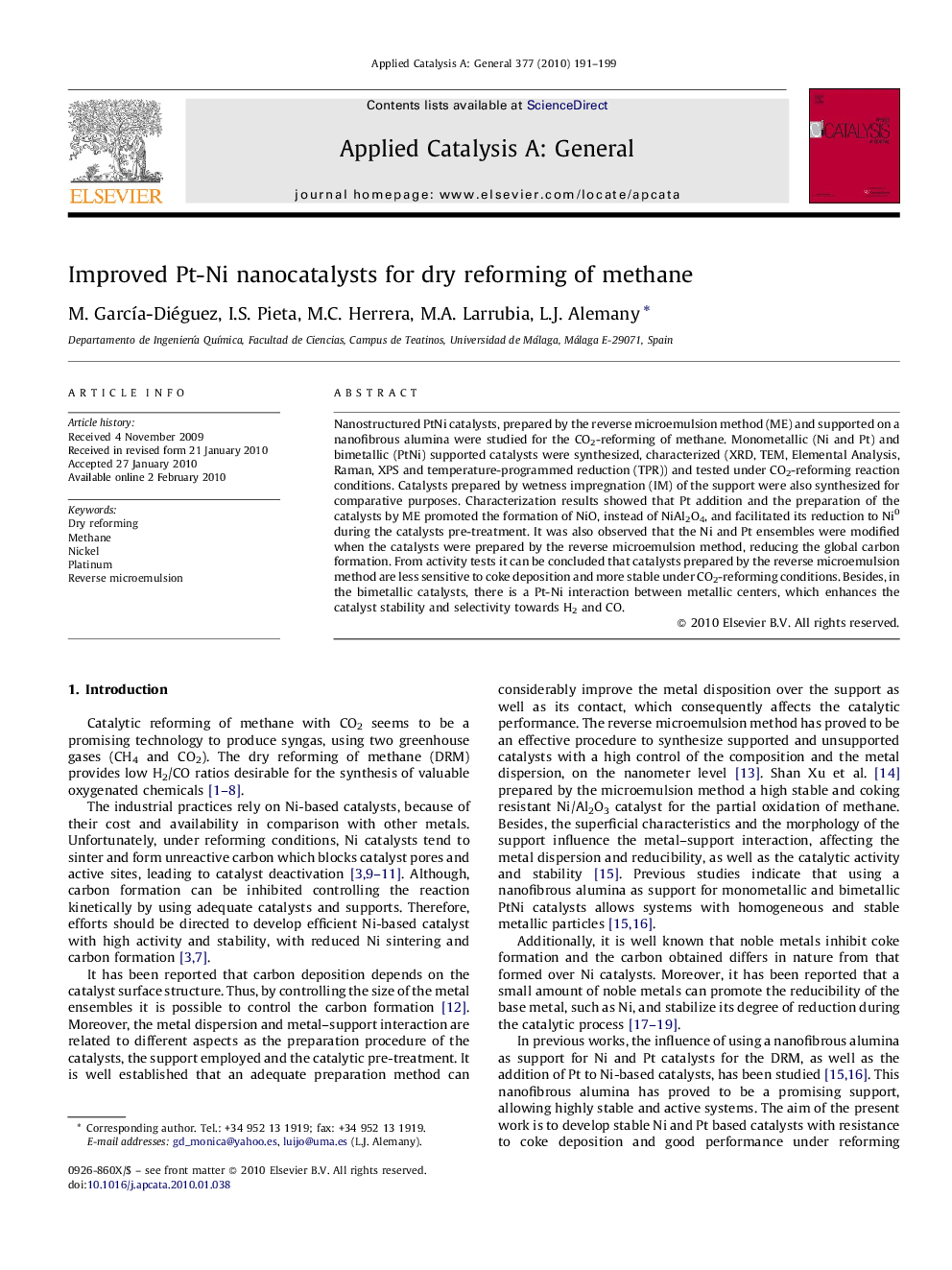| Article ID | Journal | Published Year | Pages | File Type |
|---|---|---|---|---|
| 42358 | Applied Catalysis A: General | 2010 | 9 Pages |
Nanostructured PtNi catalysts, prepared by the reverse microemulsion method (ME) and supported on a nanofibrous alumina were studied for the CO2-reforming of methane. Monometallic (Ni and Pt) and bimetallic (PtNi) supported catalysts were synthesized, characterized (XRD, TEM, Elemental Analysis, Raman, XPS and temperature-programmed reduction (TPR)) and tested under CO2-reforming reaction conditions. Catalysts prepared by wetness impregnation (IM) of the support were also synthesized for comparative purposes. Characterization results showed that Pt addition and the preparation of the catalysts by ME promoted the formation of NiO, instead of NiAl2O4, and facilitated its reduction to Ni0 during the catalysts pre-treatment. It was also observed that the Ni and Pt ensembles were modified when the catalysts were prepared by the reverse microemulsion method, reducing the global carbon formation. From activity tests it can be concluded that catalysts prepared by the reverse microemulsion method are less sensitive to coke deposition and more stable under CO2-reforming conditions. Besides, in the bimetallic catalysts, there is a Pt-Ni interaction between metallic centers, which enhances the catalyst stability and selectivity towards H2 and CO.
Graphical abstractPt-Ni nanocatalysts prepared by the reverse microemulsion method and supported on a nanofibrous alumina were studied for the CO2 reforming of methane. Preparing the catalysts by microemulsion inhibits global carbon formation, promotes the relative content of active species and avoids metal sintering, as well as improves considerably the catalysts’ stability.Figure optionsDownload full-size imageDownload high-quality image (96 K)Download as PowerPoint slide
